Filter by

Methodological Investigations in Agent-Based Modelling :with Applications for…
This Book Series is devoted to examining and solving the major methodological problems social sciences are facing. Take for example the gap between empirical and theoretical research, the explanatory power of models, the relevance of multilevel analysis, the weakness of cumulative knowledge, the role of ordinary knowledge in the research process, or the place which should be reserved to “…
- Edition
- -
- ISBN/ISSN
- 9783658172763
- Collation
- 247p
- Series Title
- -
- Call Number
- 300.1 SIL

Constitutional challenges in the algorithmic society
Technologies have always led to turning points for social development. In the past, different technologies have opened the doors towards new phase of growth and change while influencing social values and principles. Algorithmic technologies fit within this framework. Although these technologies have positive effects for the entire society by increasing the capacity of individuals to exercise ri…
- Edition
- -
- ISBN/ISSN
- 9781108843126
- Collation
- x, 330 pages ; 24 cm
- Series Title
- -
- Call Number
- 342 MIC c
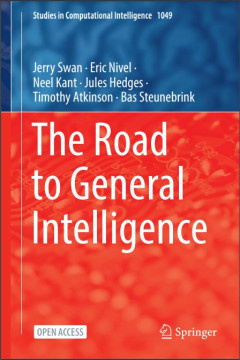
The road to general intelligence
Humans have always dreamed of automating laborious physical and intellectual tasks, but the latter has proved more elusive than naively suspected. Seven decades of systematic study of Artificial Intelligence have witnessed cycles of hubris and despair. The successful realization of General Intelligence (evidenced by the kind of cross-domain flexibility enjoyed by humans) will spawn an industry …
- Edition
- -
- ISBN/ISSN
- 9783031080203
- Collation
- xiv; 136p;
- Series Title
- -
- Call Number
- 006.3 ROA J
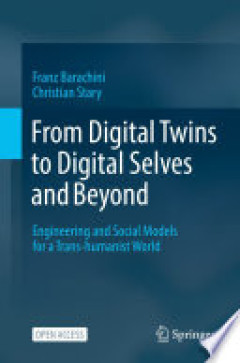
From Digital Twins to Digital Selves and Beyond Engineering and Social Model…
This open access book aims at deepening the understanding of the relation between cyber-physical systems (CPSs) as socio-technical systems and their digital representations with intertwined artificial intelligence (AI). The authors describe why it is crucial for digital selves to be able to develop emotional behavior and why a humanity-inspired AI is necessary so that humans and humanoids can c…
- Edition
- -
- ISBN/ISSN
- 9783030964122
- Collation
- XVIII, 127 p ; ill
- Series Title
- -
- Call Number
- 006.301 FRO F
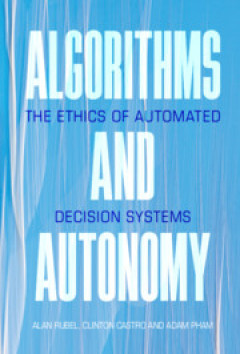
Algorithms and Autonomy :The Ethics of Automated Decision Systems
Algorithms influence every facet of modern life: criminal justice, education, housing, entertainment, elections, social media, news feeds, work… the list goes on. Delegating important decisions to machines, however, gives rise to deep moral concerns about responsibility, transparency, freedom, fairness, and democracy. Algorithms and Autonomy connects these concerns to the core human value of …
- Edition
- -
- ISBN/ISSN
- 9781108895057
- Collation
- viii, 218 p ; ill
- Series Title
- -
- Call Number
- 174.90063 ALG A
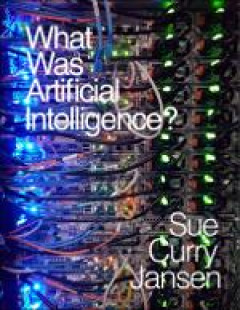
What was artificial intelligence?
When it was originally published in 2002, Sue Curry Jansen’s “What Was Artificial Intelligence?” attracted little notice. The long essay was published as a chapter in Jansen’s Critical Communication Theory, a book whose wisdom and erudition failed to register across the many fields it addressed. One explanation for the neglect, ironic and telling, is that Jansen’s sheer scope as an in…
- Edition
- -
- ISBN/ISSN
- 97819513990546
- Collation
- 37p.
- Series Title
- -
- Call Number
- 001.535 WHA
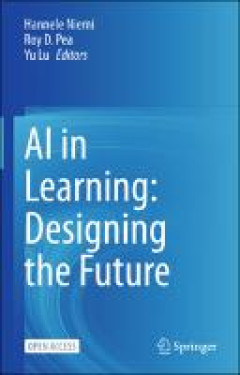
AI in learning :designing the future
AI (Artificial Intelligence) is predicted to radically change teaching and learning in both schools and industry causing radical disruption of work. AI can support well-being initiatives and lifelong learning but educational institutions and companies need to take the changing technology into account. Moving towards AI supported by digital tools requires a dramatic shift in the concept of learn…
- Edition
- -
- ISBN/ISSN
- 9783031096877
- Collation
- xv; 344 pg; ill.
- Series Title
- -
- Call Number
- 607.598 AII a
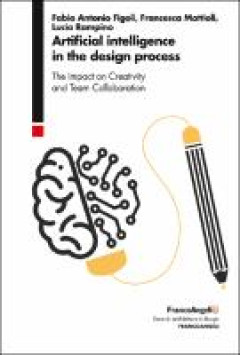
Artificial intelligence in the design process
The book discusses how to include artificial intelligence (AI) systems in the early stages of the design process. Today designers need new tools capable of supporting them in dealing with the increasing project’s complexity and empowering their performances and capabilities. AI systems appear to be powerful means to enhance designers’ creativity. This assumption was tested in a workshop whe…
- Edition
- -
- ISBN/ISSN
- 9788835134640
- Collation
- -
- Series Title
- -
- Call Number
- 006.3 ART a
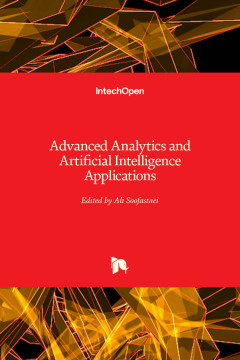
Advanced analytics and artificial intelligence applications
Computers and machines were developed to reduce time consumption and manual human efforts to complete projects efficiently. With fast-growing technologies in the field, we have finally reached a stage where almost everyone in the world has access to these high technologies. However, this is just a starting phase because future development is taking a more advanced route in the shape of artifici…
- Edition
- -
- ISBN/ISSN
- 9781839627705
- Collation
- xiii, 97p.; ill.
- Series Title
- -
- Call Number
- 006.3 SOO
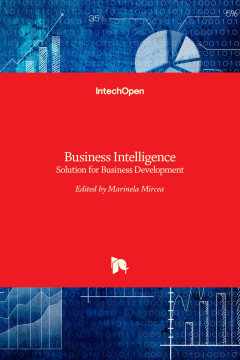
Business intelligence
The work addresses to specialists in informatics, with preoccupations in development of Business Intelligence systems, and also to beneficiaries of such systems, constituting an important scientific contribution. Experts in the field contribute with new ideas and concepts regarding the development of Business Intelligence applications and their adoption in organizations. This book presents both…
- Edition
- -
- ISBN/ISSN
- 9789535156352
- Collation
- xi, 108p.; ill.
- Series Title
- -
- Call Number
- 006.3 MIR
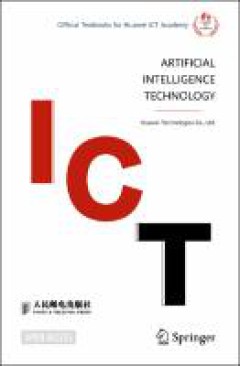
Artificial intelligence technology
This open access book aims to give our readers a basic outline of today’s research and technology developments on artificial intelligence (AI), help them to have a general understanding of this trend, and familiarize them with the current research hotspots, as well as part of the fundamental and common theories and methodologies that are widely accepted in AI research and application. This bo…
- Edition
- -
- ISBN/ISSN
- 9789811928796
- Collation
- xiii, 298p.; ill.
- Series Title
- -
- Call Number
- 006.3 ART
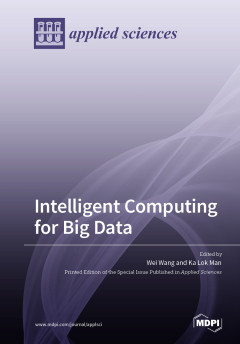
Intelligent computing for big data
Recent advances in artificial intelligence have the potential to further develop current big data research. The Special Issue on ‘Intelligent Computing for Big Data’ highlighted a number of recent studies related to the use of intelligent computing techniques in the processing of big data for text mining, autism diagnosis, behaviour recognition, and blockchain-based storage.
- Edition
- -
- ISBN/ISSN
- 9783036558783
- Collation
- vii, 90p.; ill
- Series Title
- -
- Call Number
- 371.33 INT i
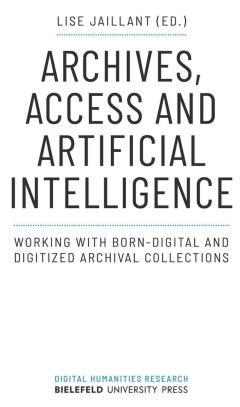
Archives, access and artificial intelligence
Digital archives are transforming the Humanities and the Sciences. Digitized collections of newspapers and books have pushed scholars to develop new, data-rich methods. Born-digital archives are now better preserved and managed thanks to the development of open-access and commercial software. Digital Humanities have moved from the fringe to the center of academia. Yet, the path from the apprais…
- Edition
- -
- ISBN/ISSN
- 9783839455845
- Collation
- 221p : ill.
- Series Title
- -
- Call Number
- 000 ARC a
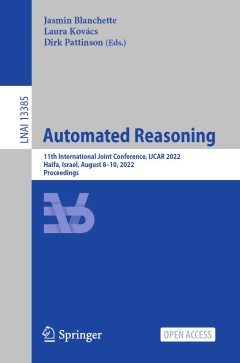
Automated reasoning
This volume, LNAI 13385, constitutes the refereed proceedings of the 11th International Joint Conference on Automated Reasoning, IJCAR 2022, held in Haifa, Israel, in August 2022. The 32 full research papers and 9 short papers presented together with two invited talks were carefully reviewed and selected from 85 submissions. The papers focus on the following topics: Satisfiability, SMT Solving…
- Edition
- -
- ISBN/ISSN
- 9783031107696
- Collation
- xv; 756 PG; ill.
- Series Title
- -
- Call Number
- 006.3 AUT a
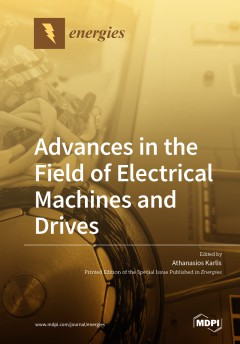
Advances in the field of electrical machines and drives
Electrical machines and drives dominate our everyday lives. This is due to their numerous applications in industry, power production, home appliances, and transportation systems such as electric and hybrid electric vehicles, ships, and aircrafts. Their development follows rapid advances in science, engineering, and technology. Researchers around the world are extensively investigating electrica…
- Edition
- -
- ISBN/ISSN
- 9783036542867
- Collation
- ix, 240p.; ill.
- Series Title
- -
- Call Number
- 621.31042 KAR
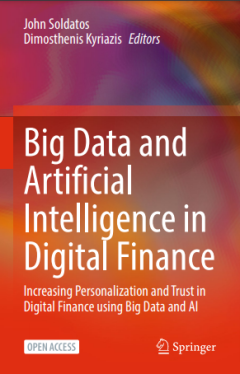
Big data and artificial intelligence in digital finance :increasing personali…
This open access book presents how cutting-edge digital technologies like Big Data, Machine Learning, Artificial Intelligence (AI), and Blockchain are set to disrupt the financial sector. The book illustrates how recent advances in these technologies facilitate banks, FinTech, and financial institutions to collect, process, analyze, and fully leverage the very large amounts of data that are now…
- Edition
- -
- ISBN/ISSN
- 9783030945909
- Collation
- xxiii, 363p.
- Series Title
- -
- Call Number
- 332.640285 BIG b
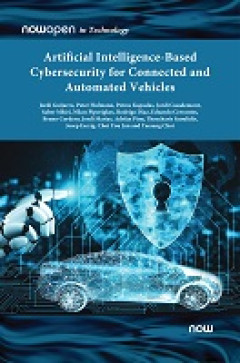
Artificial intelligence-based cybersecurity for connected and automated vehicles
The damaging effects of cyberattacks to an industry like the Cooperative Connected and Automated Mobility (CCAM) can be tremendous. From the least important to the worst ones, one can mention for example the damage in the reputation of vehicle manufacturers, the increased denial of customers to adopt CCAM, the loss of working hours (having direct impact on the European GDP), material damages, i…
- Edition
- -
- ISBN/ISSN
- 9781638280613
- Collation
- xvi, 142p.; ill.
- Series Title
- -
- Call Number
- 005.8 ART a
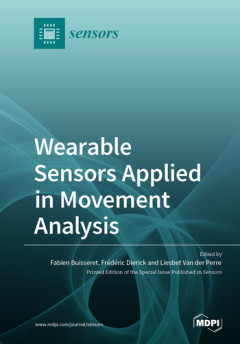
Wearable sensors applied in movement analysis
Recent advances in electronics have led to sensors whose sizes and weights are such that they can be placed on living systems without impairing their natural motion and habits. They may be worn on the body as accessories or as part of the clothing and enable personalized mobile information processing. Wearable sensors open the way for a nonintrusive and continuous monitoring of body orientation…
- Edition
- -
- ISBN/ISSN
- 9783036558592
- Collation
- vii, 143p.; ill.
- Series Title
- -
- Call Number
- 610.28405 WEA w
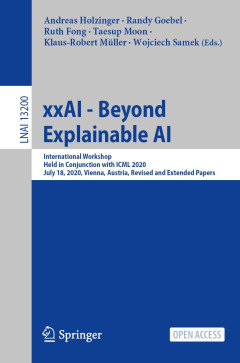
XxAI - beyond explainable AI :International Workshop, Held in Conjunction wit…
Statistical machine learning (ML) has triggered a renaissance of artificial intelligence (AI). While the most successful ML models, including Deep Neural Networks (DNN), have developed better predictivity, they have become increasingly complex, at the expense of human interpretability (correlation vs. causality). The field of explainable AI (xAI) has emerged with the goal of creating tools and …
- Edition
- -
- ISBN/ISSN
- 9783031040832
- Collation
- x; 397 PG; ill.
- Series Title
- -
- Call Number
- 006.3 XXA x
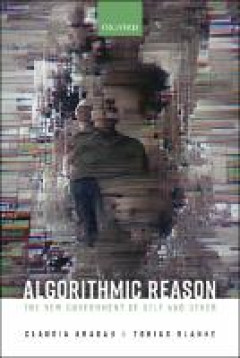
Algorithmic reason :the new government of self and other
Are algorithms ruling the world today? Is artificial intelligence making life-and-death decisions? Are social media companies able to manipulate elections? As we are confronted with public and academic anxieties about unprecedented changes, this book offers a different analytical prism to investigate these transformations as more mundane and fraught. Aradau and Blanke develop conceptual and met…
- Edition
- -
- ISBN/ISSN
- 9780192859624
- Collation
- ix; 288 pg; ill.
- Series Title
- -
- Call Number
- 363.230285 ALG a
 Computer Science, Information & General Works
Computer Science, Information & General Works  Philosophy & Psychology
Philosophy & Psychology  Religion
Religion  Social Sciences
Social Sciences  Language
Language  Pure Science
Pure Science  Applied Sciences
Applied Sciences  Art & Recreation
Art & Recreation  Literature
Literature  History & Geography
History & Geography